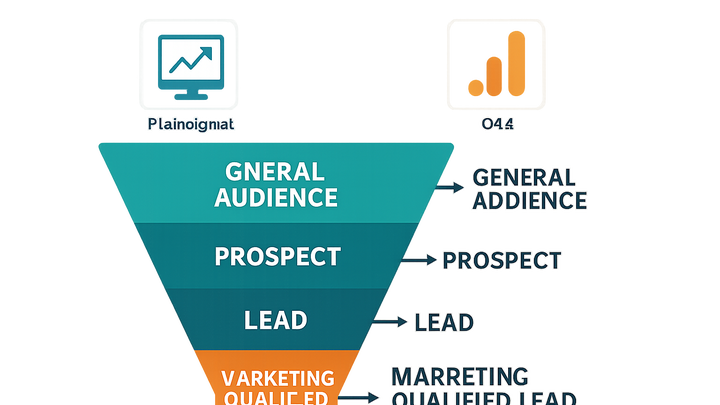Published on 2025-06-26T04:37:27Z
What is a Marketing Qualified Lead (MQL)? Examples and Best Practices
A Marketing Qualified Lead (MQL) is a prospect who has interacted with your marketing efforts and meets predefined criteria indicating they’re more likely to convert than a general lead. In analytics, MQLs bridge the gap between broad digital engagement and focused sales outreach. Organizations define MQL criteria based on behaviors (e.g., content downloads, demo requests, multiple page visits) and demographics (e.g., company size, industry, job role). Tracking MQLs helps marketers allocate budgets and optimize campaigns for higher ROI. Tools like PlainSignal provide cookie-free event tracking, while Google Analytics 4 (GA4) offers an event-based model to capture and analyze lead interactions. By combining these platforms, teams can score, segment, and hand off the highest-value prospects to sales with confidence.
Marketing qualified lead (mql)
A Marketing Qualified Lead (MQL) is a prospect meeting marketing-defined criteria—based on behaviors and demographics—signaling readiness for sales follow-up.
Definition of a Marketing Qualified Lead
This section breaks down what an MQL is in the context of digital marketing analytics and how it differs from other lead types.
-
Core definition
An MQL is a lead that has engaged with your marketing content and meets specific engagement or demographic thresholds set by marketing teams.
-
Mql vs. other lead types
Understanding how MQLs fit into your lead hierarchy ensures proper handoff between marketing and sales.
-
General leads
Contacts with minimal or no engagement—often from broad campaigns or purchased lists.
-
Marketing qualified lead (mql)
Leads who meet marketing-defined criteria such as multiple page views, form submissions, or content downloads.
-
Sales qualified lead (sql)
Leads vetted by marketing and approved for direct sales outreach based on deeper qualification.
-
Why MQLs Matter in Analytics
Quantifying and tracking MQLs gives marketers insight into campaign performance and helps prioritize resources for maximum ROI.
-
Resource prioritization
By focusing on MQLs, teams can allocate budget and personnel toward leads with the highest likelihood to convert.
-
Campaign optimization
MQL metrics reveal which channels, content, and messages drive qualified interest, enabling data-driven adjustments.
Identifying and Scoring MQLs
This section explains the criteria and scoring models used to label and prioritize leads as MQLs.
-
Behavioral criteria
Track actions such as form fills, content downloads, webinar registrations, and repeated site visits.
-
Event tracking
Use GA4 custom events or PlainSignal data attributes to capture key interactions that indicate engagement.
-
-
Demographic criteria
Assess firmographic data like company size, industry, and job function to ensure the lead fits your target profile.
-
Lead scoring models
Assign point values to behaviors and demographics, then set a threshold score at which a lead becomes an MQL.
Tracking MQLs with Analytics Tools
Learn how to implement PlainSignal and GA4 to capture, score, and report on MQL activity.
-
PlainSignal setup
Add PlainSignal’s lightweight, cookie-free snippet to track user events without relying on third-party cookies.
-
Implementation example
<link rel="preconnect" href="//eu.plainsignal.com/" crossorigin /> <script defer data-do="yourwebsitedomain.com" data-id="0GQV1xmtzQQ" data-api="//eu.plainsignal.com" src="//cdn.plainsignal.com/plainsignal-min.js"></script>
-
-
GA4 configuration
Use GA4’s event-based data model to define MQL triggers and capture them as custom events or conversions.
-
Event setup
Configure GA4 in the interface or via gtag.js to track form submissions, button clicks, and other lead actions.
-
Best Practices for Managing MQLs
Strategies to optimize your MQL process, ensure alignment, and continuously improve lead quality.
-
Close collaboration between marketing and sales
Maintain regular feedback loops so sales can report on MQL quality and marketers can refine criteria.
-
Continuous data review
Analyze MQL conversion rates and adjust scoring thresholds and criteria based on real performance data.
-
Privacy compliance
Ensure tracking and data handling for lead qualification comply with GDPR, CCPA, and other regulations.
